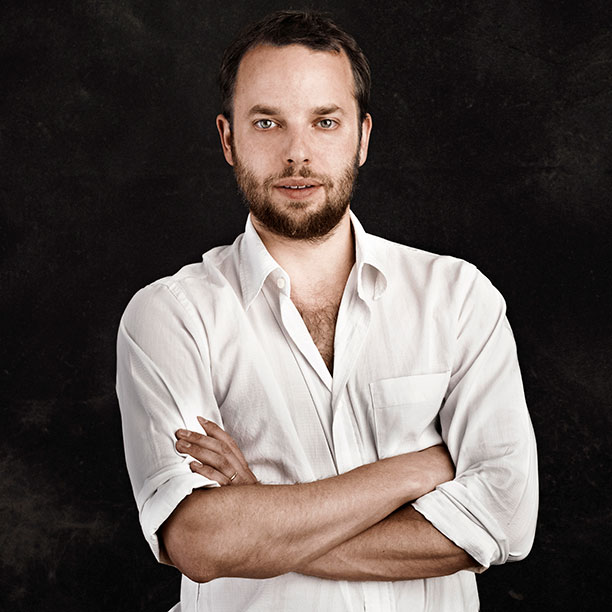Filmmaker Hugo Berkeley ’99 Tells the Story of Cold War-Era ‘Jazz Ambassadors’
On May 4, The Jazz Ambassadors, a documentary that grew from the seed of that Armstrong photo, will premiere on PBS. Berkeley, a jazz fan, explores how mostly black American jazz musicians of the early Cold War era dealt with representing a country, both abroad and at home, that still implemented racist policies and had not granted full civil rights to all its citizens. “These two histories — the civil rights movement and Cold War geopolitics — have always been approached separately,” Berkeley said. “The film, I hope, is helpful in that it fuses these two stories together.”
Though the filming was done in less than a month, the process of research, funding, producing, and editing the film has been a much longer process for Berkeley. Researching Armstrong’s Accra performance led him to Cornell professor Penny Von Eschen’s book Satchmo Blows Up the World, which tells the story of the jazz ambassadors through the lens of Cold War cultural politics. At that point, he was shocked that a film hadn’t already been made: “I knew the story I wanted to tell, so then it became fun.” After receiving a grant from the National Endowment for the Humanities, Berkeley’s idea was on its way to becoming a full documentary.
Before Berkeley was a producer, editor, and director of documentaries, he was a student at Princeton with an interest at film. As a comparative literature major studying French and Italian, he took as many classes on film as he could, and wrote his thesis about American and French documentaries from the early 1960s. He also started working as a film projectionist at 185 Nassau. “That was a good way of watching a lot of films,” he said, which in turn helped to train his cinematic eye.
The primary way Berkeley became good at what he does was not by watching but by doing. After graduation, he and another Princeton student moved to post-war Kosovo and made a documentary about the country. Berkeley called this his “version of film school, maybe slightly cheaper.” With one documentary already under his belt, he moved back to New York City and began subsidizing his films (on subjects that ranged from music in Senegal to agriculture in Ethiopia) by working as a freelance editor, producer, and director of TV documentaries, including MTV’s True Life.
In 2010, Berkeley moved back to London, where he’d grown up. He is currently working on a film about Duke Ellington and hopes to continue making films about music.












No responses yet